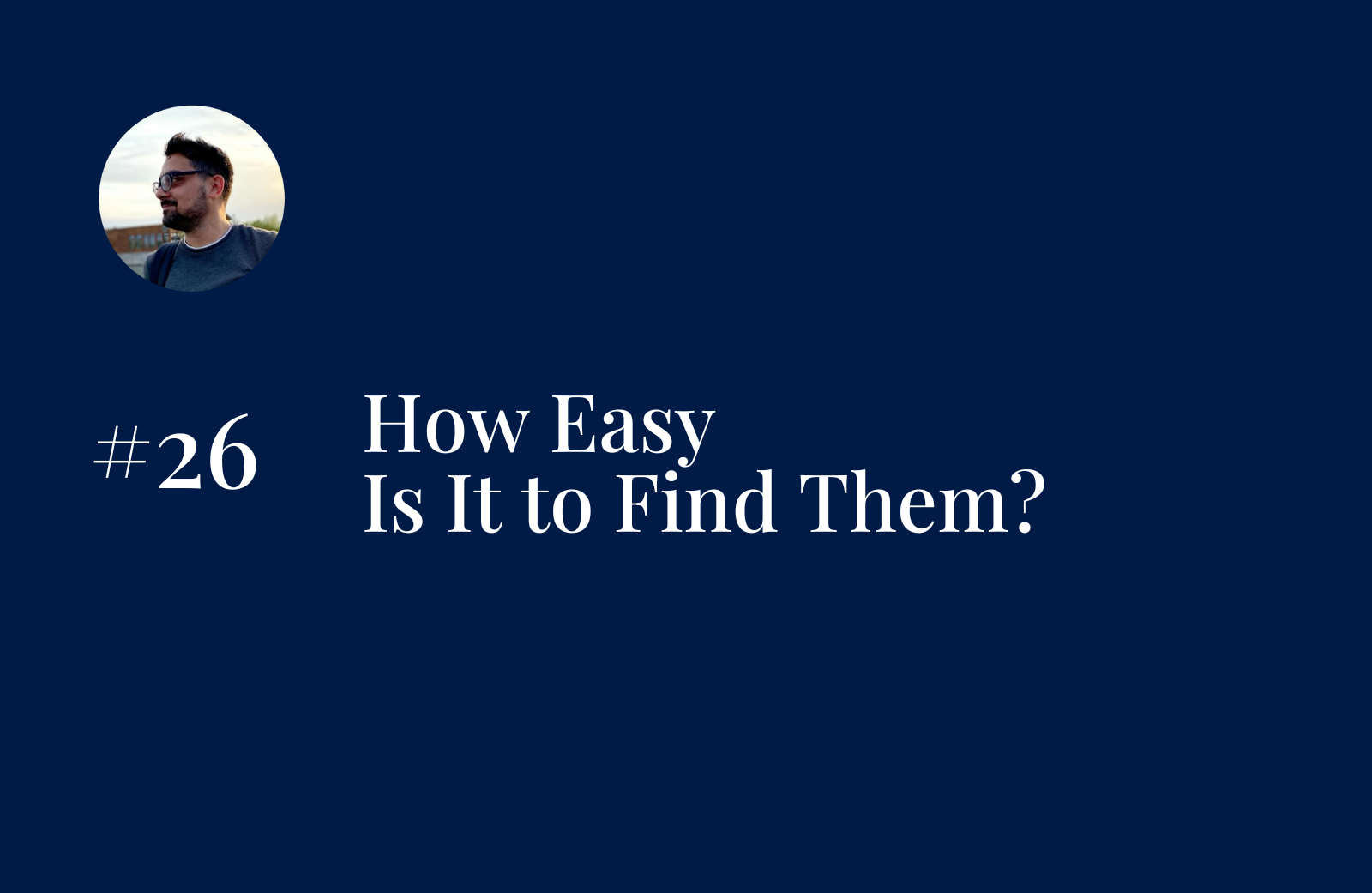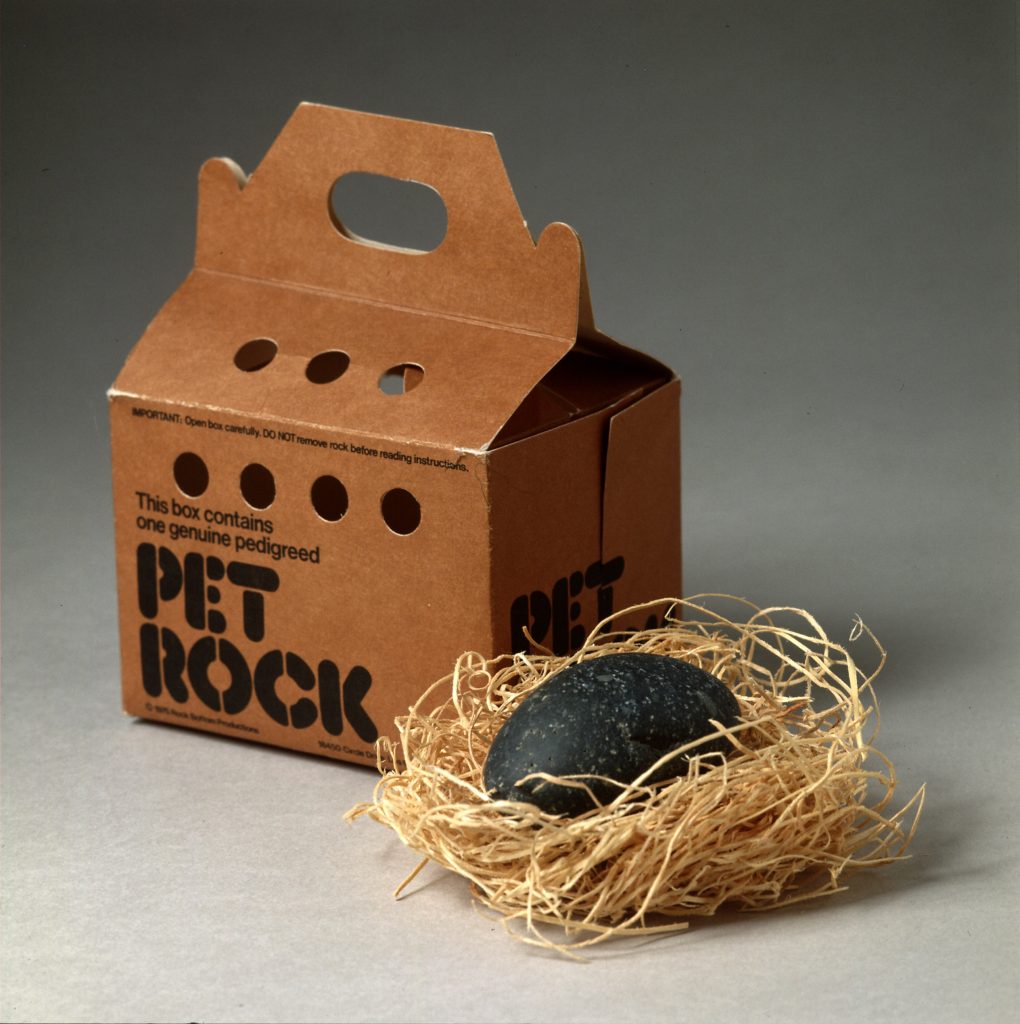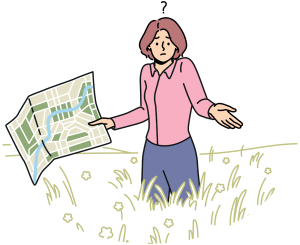
09 Oct Where Is Your Customer?
Oct 9, 2024
Let’s assume you want to start a business. You have the idea and you wonder if it’s going to work; will it generate a stable income and will you be able to find a market fit.
Let me answer those doubts with a swift: Yes, it can generate a stable income.
Why?
The world’s population is so vast that almost certainly there is at least one person who would buy what you sell.
Let me give you a few ridiculous examples to prove my point.
Ship Your Enemies Glitter
“Ship Your Enemies Glitter”, a business based in the USA, packs a paper letter for you and sends it to a person you dislike. The idea is to make them very unhappy by opening a letter full of glitter.
Imagine the face of “your enemy”! Yes, that’s a real service and there are people who use it.
The Rock
Imagine having a pile of nice-looking but essentially useless stones. You pack them in a fancy box and sell them as a pet that will never run, poop or scratch your furniture.

Yes, that was a real idea and it turned out to be successful. “The only pet that will never run away” was how it was advertised and in 1975 it generated over £10 million within the first six months.
Hire Goats
What about having ten goats who are your employees? Yes, that’s right, a company called “Hire Goats” will deliver goats to your backyard or fields for one purpose only – to eat your grass. They also advertise that goats are commonly used for brush eradication, restoring biodiversity, and maintaining farmland and pastures.
What About Your Business?
If your idea is crazy or you doubt that there is someone who would buy it, I can assure you that in 99% of the cases there is a buyer. This immediately means that the question:
Do I have a market fit?
is pointless. You do, that’s for sure. However, this is not the right question to ask, because the answer is Yes. The right question or I should say questions to ask are:
Where exactly are my customers? How easy is it to reach them?
If your idea represents just a tiny fraction of the human population and they are all spread around the world in a few dark corners, finding them would be quite difficult. Most probably they are reachable but the price for that would be so high that the revenue you would generate eventually would not cover the initial costs.
On the other hand, your idea may have a decent market fit and your customers may be just around the corner. Reaching them would be relatively easy and sometimes with nearly zero cost.
Ask The Right Question
Let’s summarise. Don’t ask “Do I have a market fit”. Take that question and throw it out the window. That’s the best place for it.
Instead ask these (and I will repeat):
Where exactly are my customers? How easy is it to reach them? How much will it cost me?
The answers to these questions must be boiled down to two numbers only:
- How many hours of work should I invest to reach one customer? Hours = ?
- How much money should I invest to reach one customer? Expenses = ?

Let’s Do The Math
Now, take the average hourly rate of the person who will work to reach the customers. This can be the wage you would like to earn per hour or the pay you give someone else per hour. Let’s label that number with – Hour rate.
Finally, calculate the final cost to reach one customer:
Cost = Hours x Hour rate + Expenses
So far, so good! However, not every potential customer will agree to buy from you. This is also known as the Conversion Rate.
In e-commerce, for example, an often-quoted average conversion rate is around 2-3%. This means if you reach 100 potential customers with your offer, you might expect around 2 to 3 of them to become actual customers.
In other industries or sales channels, the conversion rate could be higher or lower. For example, in direct sales or B2B (business to business) sales, conversion rates can be much higher, even up to 15-20%, due to the personal nature of the sales process.
For the sake of simplifying calculations, let’s pick 10%.
What does this mean? This means that if the conversion rate is 10%, we have to spend 10 times more money (this is the cost) not just to reach the customer, but to convince them to buy from us.
The final cost to reach a customer and convince them to buy from you is:
Final Cost = (Hours x Hour rate + Expenses) / Conversion Rate
Let me give a quick example. If the Conversion Rate is 0.1 (representing 10%) and the cost is:
Hours = 1
Hour Rate = 20 British Pounds
Expenses = 10 British Pounds
Then the final cost to gain just one customer is:
Final Cost = (1 x 20 + 10) / 0.1 = 300 British Pounds
This is not inexpensive unless you sell an expensive product! The revenue that customer generates for you must be higher than that.
Final Thoughts
Most certainly, there is at least one customer for your product. Therefore, ‘Do I have a market fit?’ is a pointless question. The right question is, ‘How easy is it to find prospects and convert them into real customers?’
